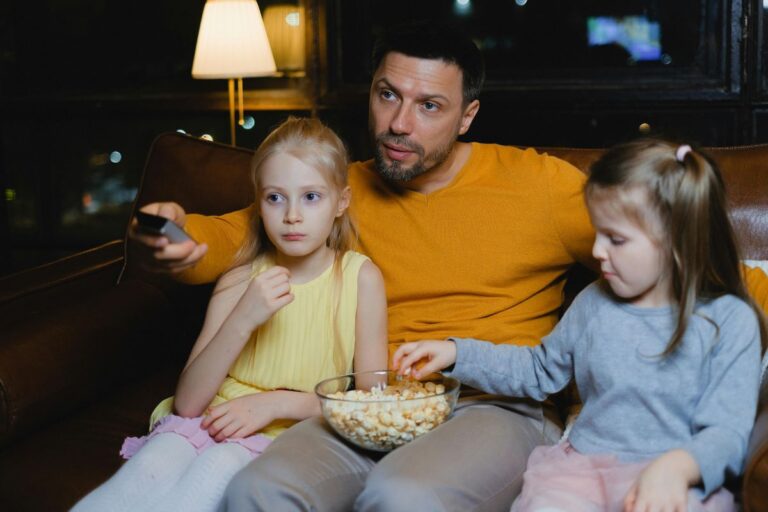Watch Your Words: 21 Phrases Parents Should Avoid
Are you worried about the impact of your words on your child’s well-being? Let’s tackle 21 phrases that might be causing more harm than you realize:
#1. “I Wish You Were More Like…”

Comparing your child to others might be fueling insecurities instead of nurturing their unique strengths.
#2. “You Always…” or “You Never…”

Using absolutes might be adding unnecessary pressure, making your child feel like they can never measure up.
#3. “Stop Crying” or “Don’t Be a Baby”

Dismissive phrases like these might be teaching your child to bury their emotions instead of learning healthy ways to express them.
#4. “Because I Said So”

Are you shutting down communication instead of fostering understanding by resorting to this phrase?
#5. “You’re Too Sensitive”

Labeling your child might be making them feel ashamed of their feelings rather than helping them navigate their emotions.
#6. “I’m Disappointed in You”

Expressing disappointment could be damaging your child’s self-esteem instead of motivating them positively.
#7. “You’re So…” (Insert Negative Trait)

Are you inadvertently limiting your child’s potential by labeling them with negative traits?
#8. “You’re Making a Big Deal Out of Nothing”

Minimizing your child’s concerns might be invalidating their feelings instead of providing support and empathy.
#9. “Why Can’t You Be More Like Your Sibling?”

Comparing siblings could be fueling rivalry instead of fostering a healthy relationship between them.
#10. “You’re Being Dramatic”

Are you unintentionally dismissing your child’s emotions by using this phrase?
#11. “You’re So Clumsy” or “You’re So Stupid”

Using derogatory language might be hurting your child’s self-esteem instead of nurturing their confidence.
#12. “I’ll Never Forgive You”

Threatening to withhold forgiveness might be causing undue stress and fear in your child instead of teaching them about forgiveness.
#13. “You’re Driving Me Crazy”

Are you blaming your child for your emotions instead of managing them responsibly?
#14. “You’re Too Young to Understand”

Dismissing your child’s thoughts based on age might be hindering their development instead of encouraging their curiosity.
#15. “I Told You So”

Using this phrase might be discouraging your child from learning from their mistakes instead of helping them grow.
#16. “Why Can’t You Be More Like Me?”

Pressuring your child to conform to your expectations could be stifling their individuality instead of nurturing their unique strengths.
#17. “You’re So Lazy”

Labeling your child as lazy might be damaging their self-esteem instead of motivating them positively.
#18. “You’re Being Ungrateful”

Invalidating your child’s feelings of discontent might be preventing them from expressing their needs instead of fostering gratitude.
#19. “You’re Just Like Your Father/Mother”

Comparing your child to a parent might be creating unnecessary tension instead of nurturing a positive relationship between them.
#20. “You’re Such a Failure”

Using harsh criticism might be crushing your child’s self-esteem instead of encouraging them to persevere.
#21. “I Give Up on You”

Expressing hopelessness might be devastating your child’s sense of worth instead of nurturing their resilience.
Building Positive Communication

As a parent, your words have immense power to shape your child’s self-esteem and well-being. By avoiding these harmful phrases and instead fostering open, respectful communication, you can nurture a strong and supportive relationship with your child, empowering them to thrive and grow into confident, resilient adults.
Toxic Talk: 21 Phrases to Never Say to Your Kids

Are you worried about the impact of your words on your child’s well-being? Let’s tackle 21 phrases that might be causing more harm than you realize. Toxic Talk: 21 Phrases to Never Say to Your Kids
Breaking Ties: Recognizing When It’s Time to Go No-Contact with Parents

Deciding to go no-contact with a parent is a profound, often painful choice, but sometimes it’s necessary for personal well-being. Are you grappling with the decision to distance yourself from a toxic parental relationship? Breaking Ties: Recognizing When It’s Time to Go No-Contact with Parents
Stop the Stereotypes: 20 Gender-Based Comments Kids Don’t Need

It’s time to challenge traditional narratives that limit kids’ potential. Here are gender-specific phrases and ideas to avoid, fostering a supportive and open-minded environment for the next generation. Stop the Stereotypes: 20 Gender-Based Comments Kids Don’t Need
Reasons Your Adult Children May Be Pulling Away

Are you wondering why your grown-up kids seem to keep their distance? It might be a good time to look back and consider if some old parenting habits are to blame. Reasons Your Adult Children May Be Pulling Away
Want Happy Kids? Try These 15 Parenting Strategies

Parenting is both a privilege and a responsibility. Here are 15 research-backed strategies to help you raise happy children. Want Happy Kids? Try These 15 Parenting Strategies
The post Watch Your Words: 21 Phrases Parents Should Avoid first appeared on Peachy Fours.
Featured Image Credit: Shutterstock / fizkes.
For transparency, this content was partly developed with AI assistance and carefully curated by an experienced editor to be informative and ensure accuracy.







